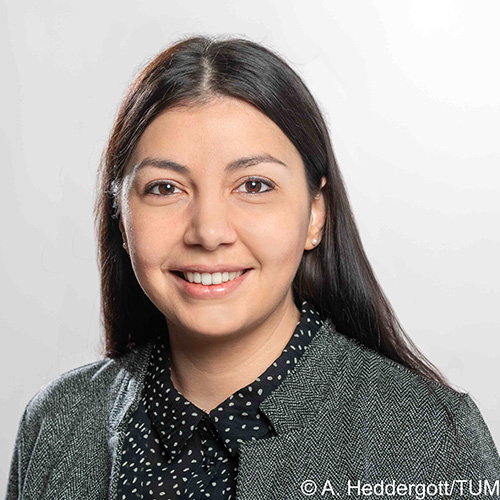Kevin P. Granata Award
The Kevin P. Granata Award commemorates Professor Kevin P. Granata and recognizes outstanding early-career researchers who have contributed to advances in kinesiology and biomechanics, and have a demonstrated commitment to mentorship. This award is funded by contributions from the Journal of Electromyography and Kinesiology (JEK).

About Kevin P. Granata
(December 29, 1961 – April 16, 2007)
Dr. Granata was an American professor in multiple departments including the Departments of Engineering, Science and Mechanics and Mechanical Engineering at Virginia Polytechnic Institute and State University (Virginia Tech), in Blacksburg, Virginia. At Virginia Tech he established and co-directed the Musculoskeletal Biomechanics Laboratory. Dr. Granata was among the leading U.S. researchers on biomechanics and movement dynamics in cerebral palsy. His research focused on muscle and reflex control and its relation to legged robotics, neuromuscular control of musculoskeletal movement, biomechanical stability and muscle dynamics, control of low-back pain, and computer simulation and clinical interpretation of pathologic walking and running. Kevin Granata was a victim of the Virginia Tech shooting on April 16, 2007. During the shooting, he shepherded students into his office in order to safeguard them. He was then killed after he went to investigate and intervene.
Granata Award Nominations 2026
ISEK is pleased to invite nominations for the Kevin P. Granata Award. This honor recognizes outstanding researchers who have recently published significant advances in the fields of kinesiology or biomechanics, and have a demonstrated commitment to mentorship.
The award consists of a complimentary Congress registration, a $750 travel honorarium as well as recognition in the Congress program.
Qualifications:
- Outstanding researcher who has published a significant work in kinesiology or biomechanics within the 24 months prior to the next ISEK Congress.
- Must be serving in the role of a junior faculty member at the level of Assistant Professor, Lecturer/Senior Lecturer or equivalent that includes the responsibilities of research, teaching, and mentoring.
- Demonstrated exceptional outcomes as a mentor and/or teacher
- Ideally a member of ISEK, but not essential.
- This award can only be received once.
Nomination:
We encourage members to recognize the current diversity in our field when making nominations. To nominate an individual or self-nominate, please submit the following:
- A published or submitted manuscript (pre-print access required) as a first or senior author. Manuscripts must have been published no earlier than 24 months prior to the next ISEK Congress.
- CV of the nominee detailing their current position, contributions to research, teaching and mentoring
Nominations open September 15, 2025
Nominations close October 31, 2025
Nominations should be submitted via email to the Society at:
Award Conflict of Interest Policy
To uphold the integrity and fairness of our ISEK’s award selection processes, the following guidelines are established for Council members involved in nominations and voting of ISEK fellowship nominations, awards connected to the ISEK congress and the selection of the congress chair:
- Eligibility and Participation:
-
- Nominee status: Council members can nominate themselves to be a Congress Chair, but not for ISEK awards or ISEK fellowships.
- Discussion and voting for Congress Chair: In the case that a council member has expressed an interest in becoming the next Congress Chair, they must recuse themselves from all discussions and voting related to the selection process.
- Discussion and voting for ISEK awards including the ISEK Fellow: Council members who nominate individuals for ISEK awards including the ISEK fellowship are permitted to participate in the voting process, provided they disclose any potential conflicts of interest.
-
- Disclosure of Potential Conflicts:
-
- Prior to the commencement of any deliberations for ISEK fellowships, awards connected to the ISEK Congress, and the selection of the Congress Chair, Council members must disclose any relationships or circumstances that could be perceived as a conflict of interest. These include, but are not limited to:
-
-
- Close personal relationships (e.g., family members, partners, close friends).
- Professional relationships (e.g., current or former students, advisors, close collaborators).
- Co-authorships or joint projects in the last 5 years.
- Affiliation with the same institution as the nominee.
-
-
- Prior to the commencement of any deliberations for ISEK fellowships, awards connected to the ISEK Congress, and the selection of the Congress Chair, Council members must disclose any relationships or circumstances that could be perceived as a conflict of interest. These include, but are not limited to:
-
- Assessment and Management:
-
- Disclosed conflicts will be assessed on a case-by-case basis by the Past President, who does not hold voting rights, to determine the appropriate course of action. This may include recusal from specific discussions or votes.
- The Chair of the selection committee will document all disclosures and the measures taken to manage each conflict.
-
- External Reviewers:
-
- A minimum of five eligible voting members is required for each award decision. If fewer than five Council members remain eligible due to recusals, the Council may appoint external reviewers or establish an ad-hoc independent committee to reach the required number and ensure a fair and unbiased selection process appoint.
-
- Confidentiality:
-
- All deliberations, discussions, and materials related to the award selection process are to be kept confidential. Council members must not share information about nominees, deliberations, or outcomes outside the committee.
-
2026 Winner

Cristina Piazza, PhD
Technical University of Munich (TUM)
Cristina Piazza received a B.Sc. in Biomedical Engineering, a M.S. in Automation and Robotics Engineering and a PhD degree in Robotics (summa cum laude, 2019) from the University of Pisa (Italy). During her PhD, she had a prominent role in the participation to several international competitions, such as leading the SoftHand Pro team in Cybathlon Powered Arm Prosthesis Global Edition 2020 (II place). She subsequently moved to Chicago (USA) where she worked as a postdoctoral researcher at Northwestern University and Shirley Ryan AbilityLab (former Rehabilitation Institute of Chicago). Since 2020, Prof. Piazza is tenure track assistant professor for Healthcare and Rehabilitation Robotics at the Technische Universität München (TUM). Dr. Piazza has received several academic awards, including the best paper award at the conference IEEE Humanoid 2012 and IEEE CBS 2025, the Dr. Kanako Miura Award, and PhD Talent 2019 award for the best PhD Thesis at the University of Pisa. She is currently co-chair of the IEEE/RAS Technical Committees for Robotic Hand, Grasping and Manipulation (since 2022), and IEEE/RAS Technical Committees for Cyborgs and Bionic Systems (since 2023). She serves as Editor-in-Chief and Associate Editor for several major IEEE Journals and Conferences and as General Chair for IEEE Cyborg and Bionic Systems 2026.

